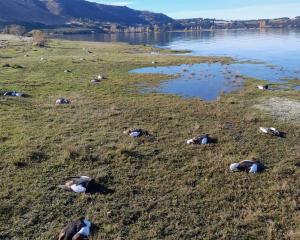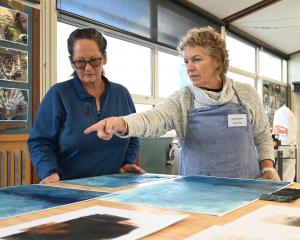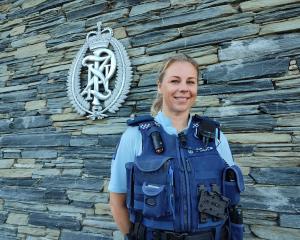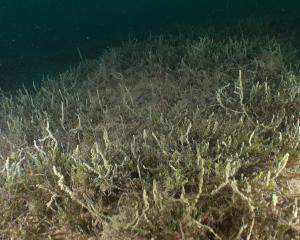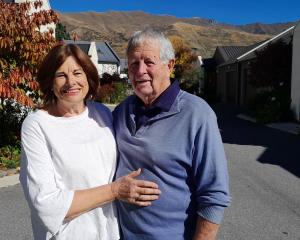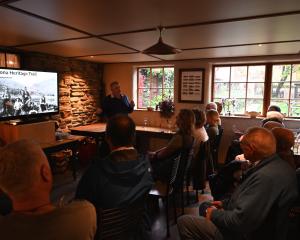A variety of issues were put to Otago Fish and Game officers by local anglers on Wednesday, during a feedback session for the Fish and Game council's annual review of the sports fishing regulations.
Fish and Game officer Cliff Halford presented findings of the review to around 20 Wanaka anglers at the Lake Wanaka Centre on Wednesday night.
The issues of declining fish numbers, regulation simplification and lack of scientific knowledge were brought to the fore of the two-hour discussion.
Possible options for solving the issues were presented to the meeting including reducing the daily bag limit.
Most of the audience agreed with that approach, pointing out the fact fishermen would still be able to catch as many fish as they liked, as the limit would affect only the number they could take home.
Upper Clutha Angling Club president Owen Poole was one of the advocates for this change.
``The view of the Upper Clutha Angling Club is that it [the bag limit] should be reduced from six to four. [Lake] Wanaka is really suffering.''
Fellow fisherman John Highton agreed.
``Surely the common sense thing to do is to take a precautionary approach, given the level of concern that there is around [about the number of fish], and reduce it to at least four, and in my view two.''
He also believed surveying spawning waters would be crucial to discovering whether fish numbers had dropped in the region.
Mr Halford divulged that the bag would have to be reduced significantly for it to have any impact on harvest.
But Mr Poole disagreed.
``You said it had to be meaningful. Six to four is a 33% decline. That's meaningful. Most people would think that was meaningful.''
Simplifying the regulations was another issue where many anglers provided feedback.
Mr Halford said there was ``national concern'' about the regulation guidebook continuing to lengthen year upon year.
`` The regulations need to be simplified. We're looking at aligning with our neighbouring Fish and Game regions for angler interpretation, so when anglers are picking up the book they're not seeing a whole lot of different regulations all the time.''
Fellow officer Paul van Klink believed many found it difficult to understand the regulations on the upper section of the Clutha River, especially at Deans Bank.
``For most people fishing on the Clutha River, they find it [the regulations] very complicated. Most people who are fishing the river are actually from out of the region. It's really easy if you live here and have fly-fished it all your life, but for visiting people it's really complicated.''
Fish and Game councillor Rick Boyd thought the rules were not particularly difficult, but needed to be presented in a way that would be easier for people to understand.
``You only fish one place at a time and all you need is the regulations set out in a way that's easy for someone to find what applies to that particular piece of water. It's not rocket science. Primarily it's the way they're expressed and the way they're presented in the booklet that's the issue.''
Mr Poole said the angling club agreed the rules needed to be written more coherently, but believed the rules themselves were fine.
The majority of those in attendance were not impressed with Fish and Game's lack of scientific knowledge of the Otago fisheries after Mr Halford revealed Fish and Game had ``very little information'' from any of the lakes in the Otago district.
``You don't have any knowledge. I would've thought that a priority of Fish & Game would be to commit their resources to getting some decent information,'' angler and former councillor Ray Grubb said.
Fish and Game officers will continue to seek feedback on the review from anglers in Balclutha, Alexandra, and Dunedin next week.
The deadline for written submissions is March 5, and any changes will be enacted at the beginning of the 2018-19 fishing season, on October 1.

